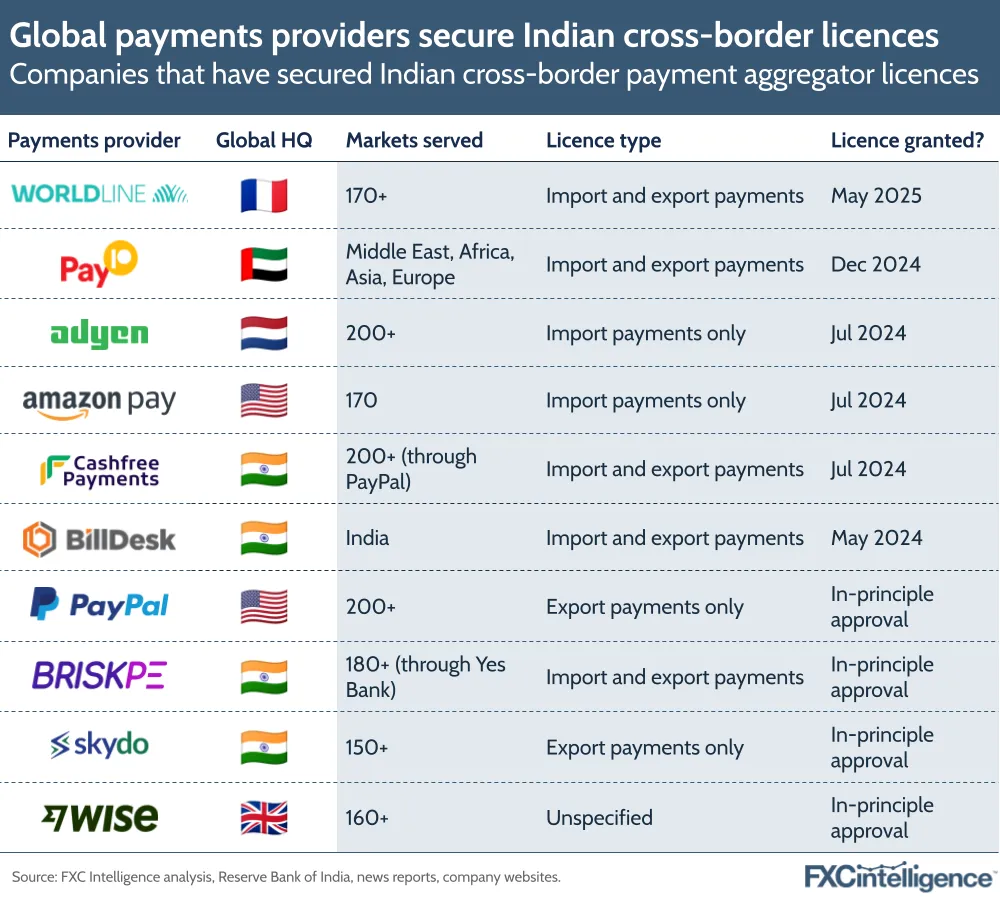PayPal has received in-principle approval for a licence to operate as a cross-border payments aggregator for exporters in India, while Worldline has been granted a similar licence that also covers import payments. The country is continuing to push for more efficient global payments infrastructure – and therefore business – from its growing SMB base.

In recent years, India has ramped up its rules to regulate cross-border payments and make them more transparent. Since 2021, non-bank platforms aggregating payments for multiple Indian businesses have needed a Payment Aggregator Cross-Border (PA-CB) licence from the Reserve Bank of India (RBI) to do so legally, though different rules apply for banks, direct recipients or companies handling remittances. There are further regulatory and technological requirements PayPal must comply with to achieve full authorisation.
Although PayPal and Worldline had already been operating in India, the licence enables them to collect payments on behalf of multiple Indian exporters and disburse settlements to them so that they can scale up their client bases (i.e. SMBs, freelancers and software-as-a-service companies for PayPal, merchants for Worldline). Worldline has secured approval for export and import payments, while PayPal has currently only achieved in-principle approval for exports.
The companies join a number of other global players that have pursued this licence, including Adyen and Amazon Pay, which have both been fully authorised to handle import payments. With the addition of Worldline, six companies have been fully authorised so far according to the RBI, though a number of other organisations either have in-principle approval or are waiting for approval.
The pursuit of the licence from global companies shows confidence in India’s importance for global trade, which despite ongoing concerns around the US tariffs has seen significant strength in recent years. In particular, India reported record-high exports in its FY 2024-2025 period of $825bn, driven particularly by services, with the country last year reiterating a commitment to $2tn in exports by 2030.
Global payments providers from outside the country continue to engage with its vast cross-border payments opportunity. However, only a select few companies have achieved the required licence to aggregate cross-border payments across multiple businesses, providing them with greater access to the country’s addressable market. As more players are granted approval, we could see this specific segment of the cross-border space get more competitive.
Find out more about the cross-border payments opportunity with a custom report


